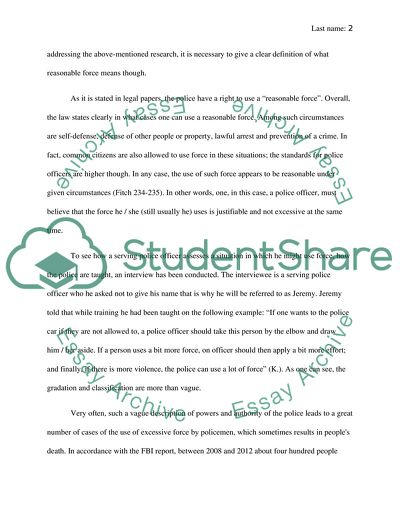Cite this document
(“Is police brutality justifiable in the United States Essay”, n.d.)
Is police brutality justifiable in the United States Essay. Retrieved from https://studentshare.org/english/1657562-is-police-brutality-justifiable-in-the-united-states
Is police brutality justifiable in the United States Essay. Retrieved from https://studentshare.org/english/1657562-is-police-brutality-justifiable-in-the-united-states
(Is Police Brutality Justifiable in the United States Essay)
Is Police Brutality Justifiable in the United States Essay. https://studentshare.org/english/1657562-is-police-brutality-justifiable-in-the-united-states.
Is Police Brutality Justifiable in the United States Essay. https://studentshare.org/english/1657562-is-police-brutality-justifiable-in-the-united-states.
“Is Police Brutality Justifiable in the United States Essay”, n.d. https://studentshare.org/english/1657562-is-police-brutality-justifiable-in-the-united-states.


